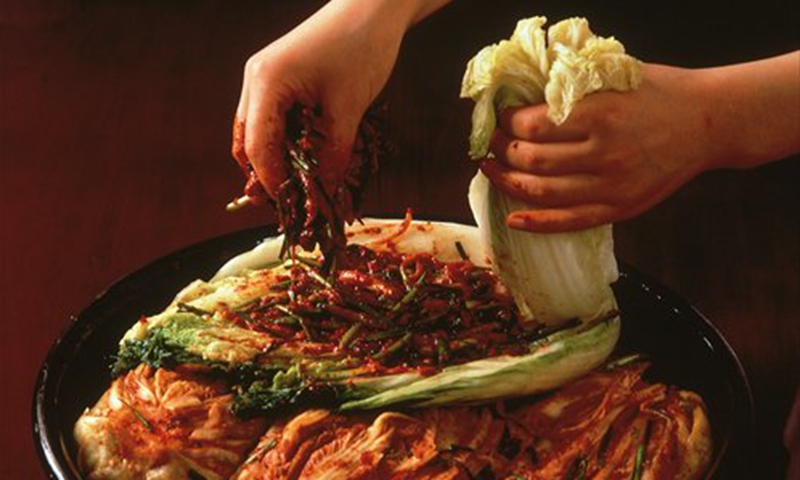
A person making kimchi File Photo: CFP
About 90 percent of the kimchi imported by South Korea comes from China, with a small town in East China's Shandong Province leading the country's export of kimchi, or Paocai as the preserved cabbage garnish is called in Chinese, accounting for 80 percent.
Renzhao town of Pingdu city, in East China's Shandong Province, has been crowned the "top kimchi town" in China as many of local vegetable growers export kimchi to South Korea, according to media reports.
Many of the farmers care more about the weather in South Korea than their own local weather, as they have to gauge the planting of their crop based on the South Korean climate and weather conditions.
The town not only provides the raw Chinese cabbage, but also makes kimchi in local processing plants for export to South Korea.
In October South Korea suffered a kimchi shortage, which sent cabbage prices and orders from Chinese farmers soaring.
"When I heard of the kimchi crisis in South Korea, I visited my cabbage patch five times a day, eager for it to grow," sensing the kimchi shortage in South Korean would be an excellent business opportunity, a local farmer told the media.
Korean families eat more kimchi during the winter, sending the price of bok choy or Chinese cabbage sky-high due to the surge in demand.
According to South Korea Customs Service, the country imported 177,000 tons of kimchi from China in the first eight months of this year, continuing a growing trend.
This growing trend shows Chinese kimchi not only dominates the South Korean restaurant market due to its good quality and reasonable price, but is also finding its way to the dining tables of South Korean families.
In early December, a China-led application to the International Organization for Standardization (IOS) for paocai, the Chinese version of pickled cabbage, ignited a feud with protectors of kimchi culture on South Korean social media, who accused China of attempting to "steal the culture," which Chinese experts disagreed with, refuting it as an "unnecessary fuss."




